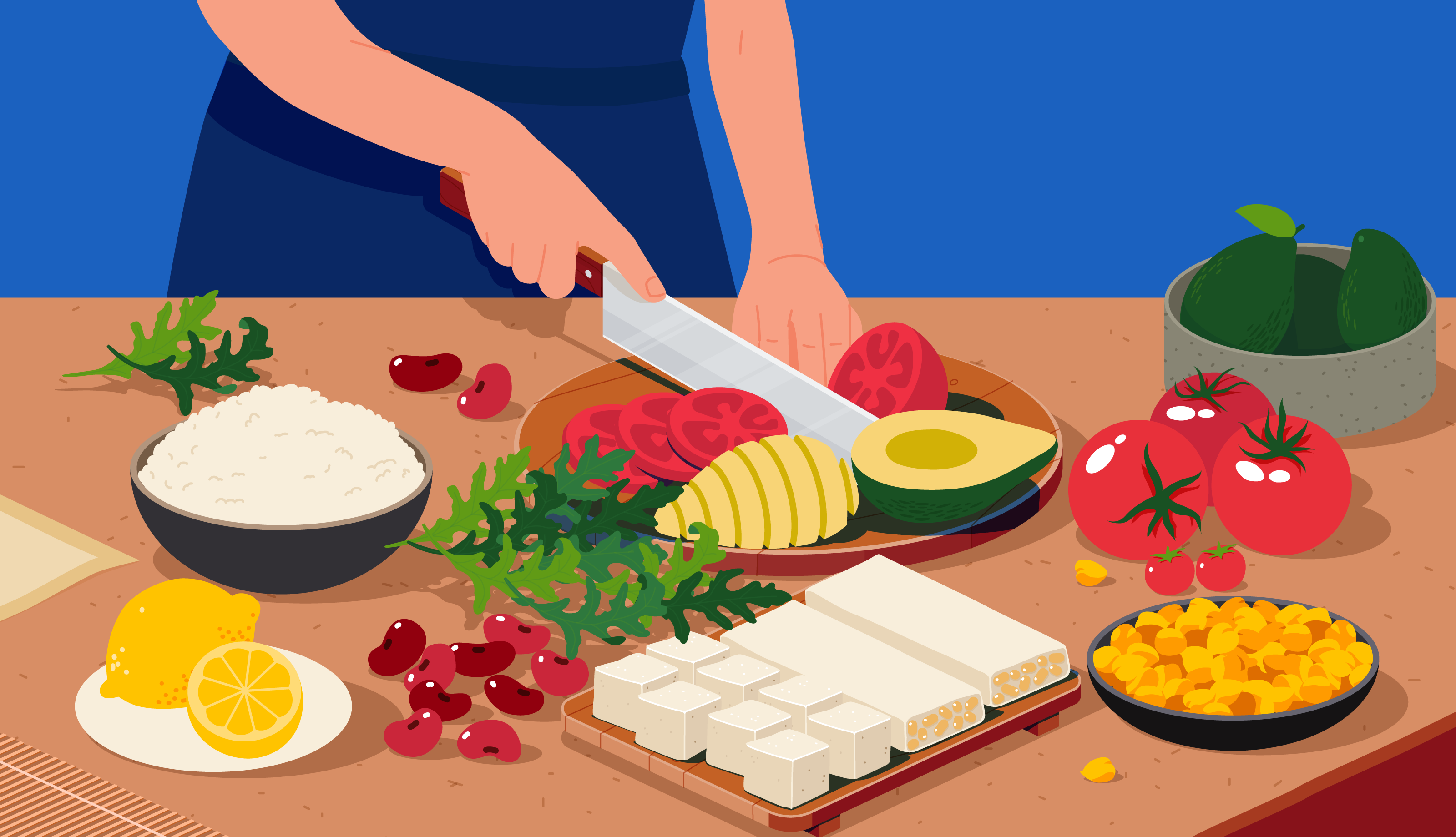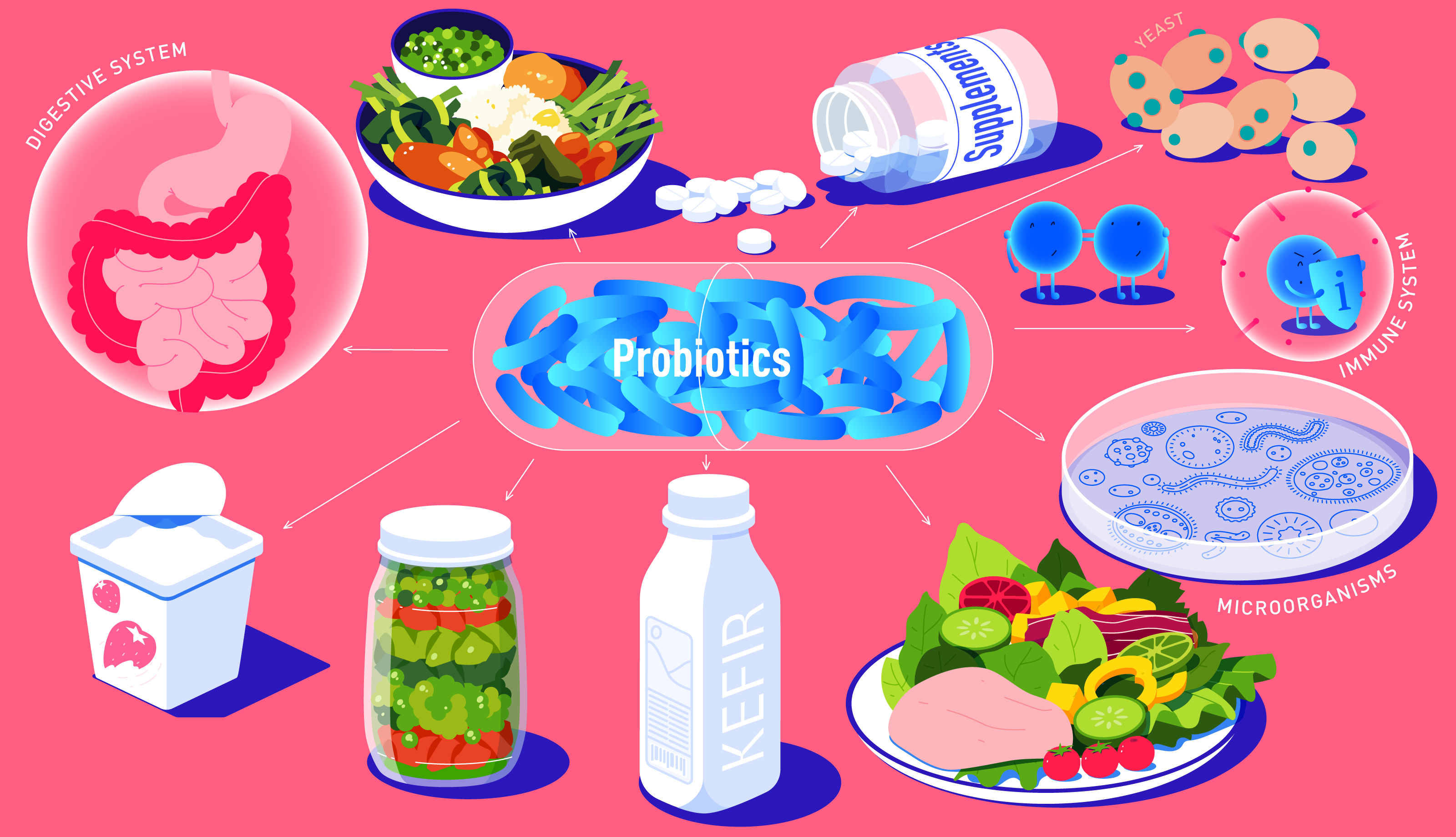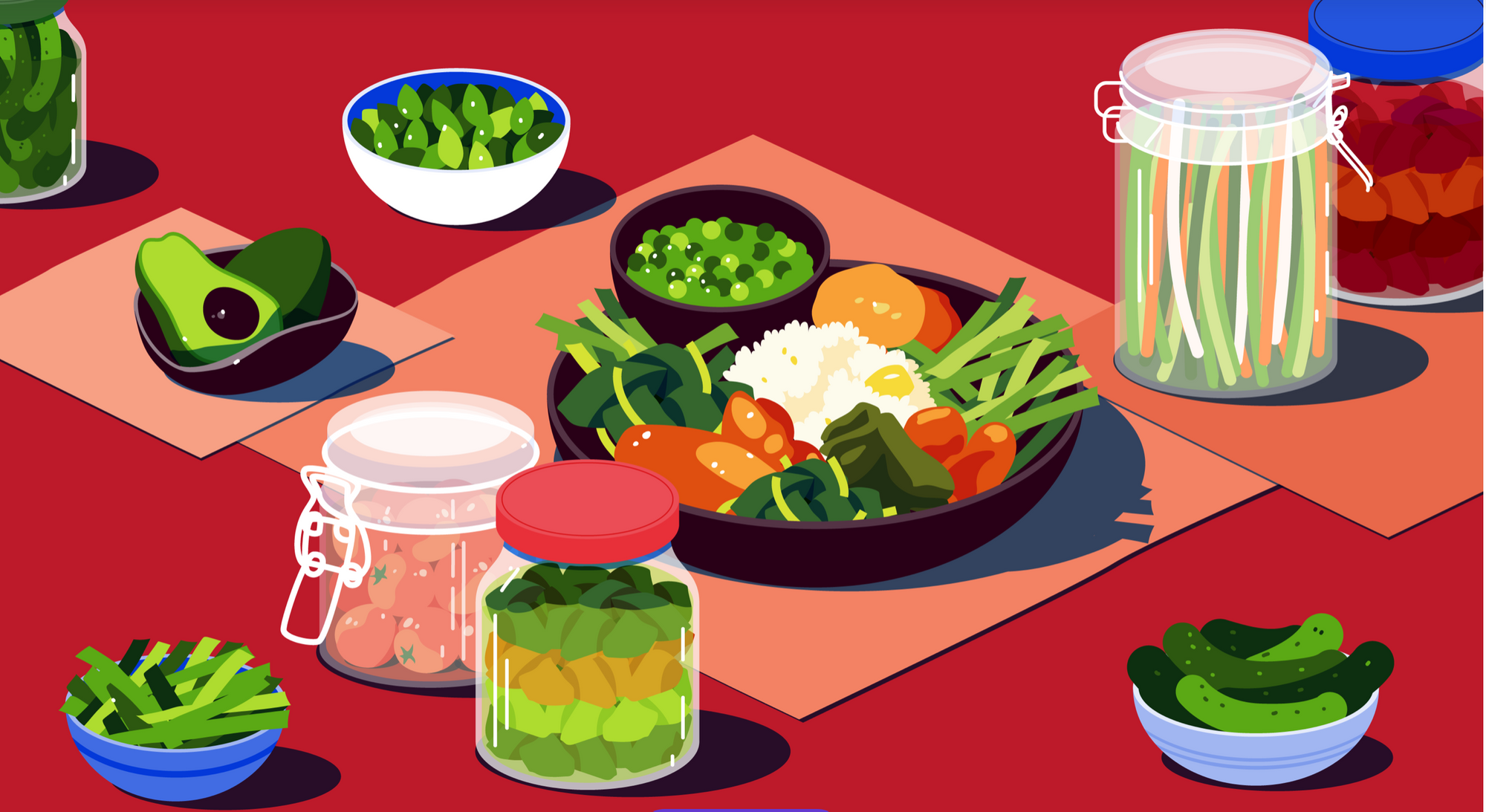To mark the upcoming World Microbiome Day, we've compiled 7 top tips to cultivate your gut bacteria for health.
Table of contents
- Use antibiotics and other medications judiciously
- Eat plenty of prebiotic fibre
- Add colour to your plate
- Get into nature
- Experiment with fermented foods
- Make time to de-stress
- Limit or avoid artificial sweeteners
- Get moving
- Nutritionist top tips to improve your diversity score
- Celebrate Microbiome Day by testing your own
Earth hosts multiple unique ecosystems, from deserts to arctic tundra, tropical rainforests to soaring vistas. Each of these sustains an array of species, which shape and are shaped by the environments they inhabit.
Likewise, the human body is colonised by trillions of microbial species, inhabiting distinct ecosystems in and on the mouth, genitals, skin and most important of all, the gut.
Your lifestyle, diet and genetics influence the composition of these microbes, which can also shape your health.
95% of the roughly 100 trillion microbes residing on you can be found in the colon, with bacteria the best studied of them all.
Far from hitching a free ride, gut bacteria program the infant immune system, metabolise extra nutrients from fibre, synthesise vitamins and produce anti-inflammatory compounds which maintain intestinal health.
Researchers unanimously agree that diversity and balance are key markers of microbiome health, reducing your risk of pathogenic takeover and inflammatory diseases.
With World Microbiome Day nearly upon us, we’ve compiled some top tips to help you cultivate your gut bacteria for health. Let’s jump in:
Use antibiotics judiciously

Antibiotics are used to treat or prevent bacterial infections. Whilst they are highly effective at eliminating pathogens, they are about as nuanced as a hand grenade, unable to distinguish between harmful gut bugs and beneficial bacteria.
If you imagine your gut ecosystem as a jungle, antibiotics are like a wildfire that indiscriminately blazes through the trees; sure, they take out the bad guys, but not without collateral damage.
In these instances, the solution does not match the threat- it’s like using a flamethrower to get a spider out of your bedroom.
Antibiotics are undeniably a wonder drug that can save lives, but you should weigh their use in a cost-benefit analysis and on a case-by-case basis.
Additionally, speak to your GP about whether postbiotics could be a good option for you; these are cocktails of beneficial microbes designed to restore gut flora after antibiotic-related disruptions.
Eat a diet rich in prebiotics
Your gut plays host to a constant battle between microbial species for space and nutrients. Depending on your long-term diet, you can swing the battle in favour of helpful microbes or tip the balance towards more harmful ones.
Like any army, beneficial microbes march on their stomach and require the right foods to prosper.
Prebiotics are non-digestible foods which promote the growth of beneficial bacteria in the gut (probiotics).
A prebiotics-rich diet can support and enlarge existing communities of beneficial bacteria, improving your intestinal health. No amount of probiotics can compensate for a diet lacking in prebiotics- just as a plant seed won’t grow without water.
Eat the rainbow
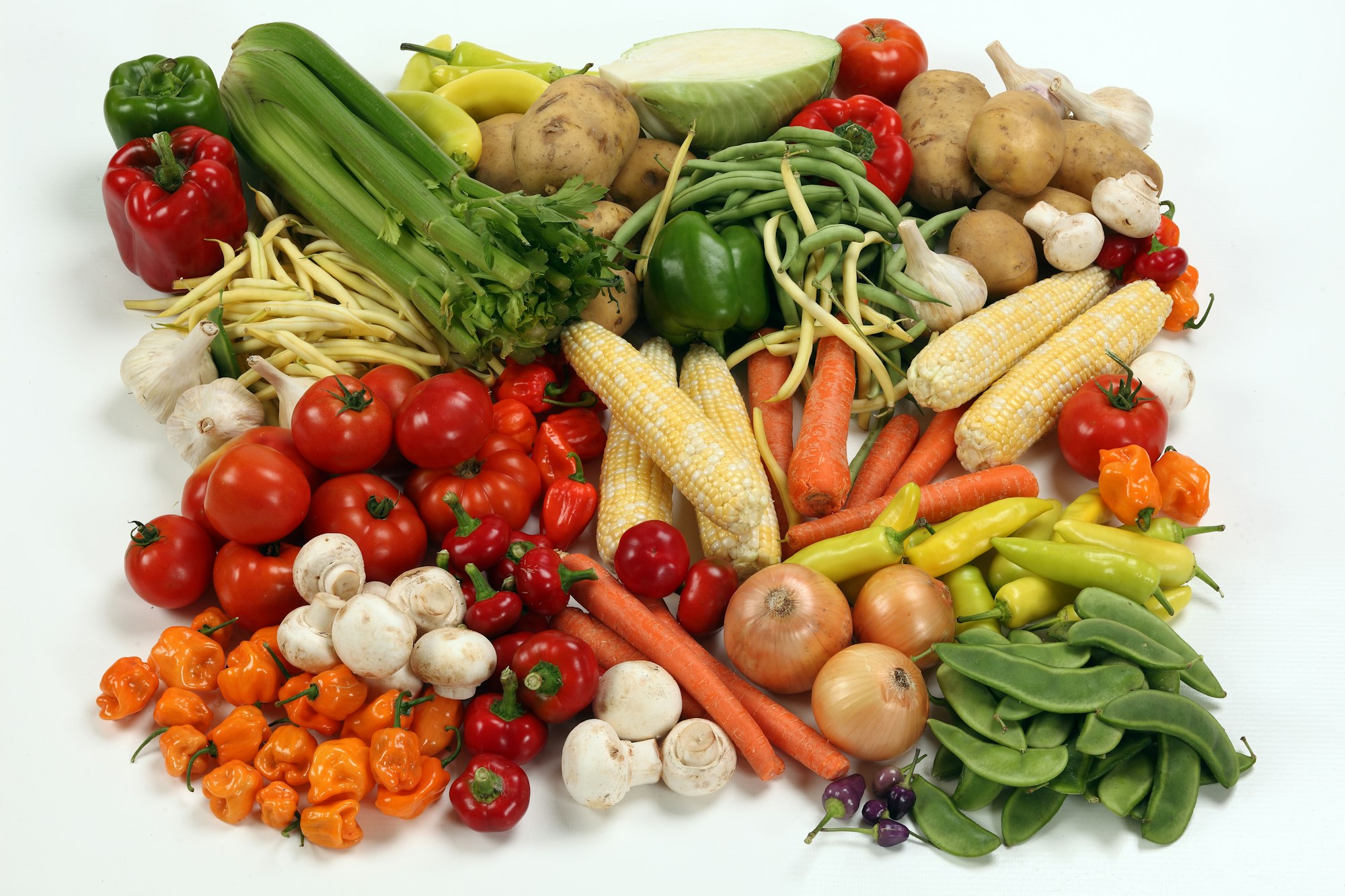
Make sure you eat a colourful array of vegetables and fruit daily, as these are full of polyphenols. Poly-what?
In short, polyphenols are prebiotic plant compounds that can nourish probiotics such as bifidobacterium and reduce inflammation, a root cause of numerous chronic conditions.
What’s more, polyphenols are also antioxidants, meaning they eliminate damaging free radicals in the body.
Nuts, seeds, olive oil, berries, dark chocolate and green tea, are all high in polyphenols, as is red wine. With that said, ensure you only drink in moderation, as excessive alcohol can diminish microbiome diversity and increase free radicals in the body.
Get into nature
Those living in rural areas often have higher diversity levels than their city-dwelling counterparts, which researchers suspect is due to their interaction with soil and animals.
Interestingly, they boast higher diversity than those in highly developed nations, and their microbiome also contains bacterial species from the surrounding biosphere, including soil and plants.
Whilst you shouldn’t be rolling in dirt like a hippo, there is a case to be made that fastidious cleanliness may be eliminating some helpful bacteria in the natural environment.
By spending more time in nature, breathing in the forest air and playing in the dirt, we get up close with more beneficial microbes, which may help to support the diversity of our gut microbes.
A safe and practical way to reap the potential benefits of these surrounding microbes is to try your hand at gardening or get out into the woods.
Whilst getting into nature can increase microbiome diversity, make sure to wash your hands before eating and after touching animals.
Experiment with fermented foods
Fermentation has been used as a food preparation method for thousands of years and in almost every culture.
In a small proof of concept trial at Stanford University, researchers compared the effects of a high fibre diet on the microbiome with one enriched in fermented foods such as kimchi, kefir and sauerkraut.
After ten weeks, those on the fermented diet showed increased microbiome diversity and reduced immune responses.
More specifically, those on the fermented diet showed less activation in immune cells and had lower levels of circulating interleukin 6, a pro-inflammatory cytokine linked to arthritis and chronic stress. No such anti-inflammatory effect was observed in those following a high-fibre diet.
In short, fermented foods can deliver colonies of helpful bacteria to the gut. However, whether they set up shop permanently depends on various factors, including long-term diet, the amount consumed and other lifestyle factors.
Aim to eat a small serving of kimchi, kraut, kefir or kombucha daily- I like to have a shot of kefir with my morning coffee and a serving of kimchi with scrambled eggs.
Make time to de-stress
Chronic stress can drive and augment numerous gastrointestinal issues, including irritable bowel syndrome and multiple inflammatory bowel diseases.
Worse still, chronic stress is associated with decreased microbiome diversity and increased intestinal permeability.
To date, a cause and effect relationship has not been conclusively established, though it’s suspected that stress can impact our gut bugs both directly and indirectly.
Firstly, stress can trigger comfort eating and cravings for ultra-processed foods high in salt, fat and sugars. A diet enriched in these foods can diminish diversity in the microbiome and undermine the integrity of the gut wall.
Additionally, scientists posit that physiological changes caused by stress-related hormones may alter the “weather” in the gut, favouring robust pathogenic bacteria over beneficial microbes.
In particular, reduced gut motility and mucus production are cited as potential drivers for shifts in microbiome composition.
In light of this, it’s crucial that you keep stress in check and practise techniques to calm your mind and gut. There is no one-size-fits-all technique to manage stress, although mindfulness meditation and exercise both enjoy strong evidential support.
Make time to practice activities you find intrinsically enjoyable each week and speak to a friend or professional if you are feeling overwhelmed.
☝TIP☝ Sign up for the FREE Atlas Stress Management Course and learn evidence-based techniques to minimise stress, sleep better and nurture your physical and mental wellbeing.
Get moving

Exercise is associated with increased probiotic bacteria and species diversity, particularly cardiovascular exercise.
In one study, a group of sedentary individuals saw an enrichment in Firmicutes when they began exercising daily.
Likewise, a 2017 study found that more active women boasted a “higher abundance of health-promoting bacterial species” than a parallel sedentary group.
In particular, the active group showed enrichment in Faecalibacterium prausnitzii, Roseburia hominis, and Akkermansia muciniphila.
Naturally, some of these microbial differences might be due to factors other than exercise- more active individuals may be more likely to eat a diet conducive to microbiome health, for example. With that said, the consensus is that exercise is likely good for your gut bacteria, independent of diet.
The NHS recommend that you do at least 150 minutes of moderate-intensity activity a week or 75 minutes of vigorous-intensity activity a week, spread evenly over 4 to 5 days.
If you’re just beginning, gradually work your way up to this goal. How you choose to move is entirely up to you, so long as you elevate your heart rate.
Nutritionists’ top tips to improve your diversity score
We called upon our head nutritionist and gut expert, Liza Hilman, to share her top tips for boosting diversity. By trying out these suggestions, you can take your gut from zero to hero in no time:
- swap crisps for toasted nuts or seeds
- add lentils and legumes to your sauces to boost fibre intake
- substitute white bread for whole-grain or sourdough as they pack a prebiotic punch
- when making crumble, replace 1/4 of the flour with oats or ground nuts
- buy mixed beans instead of just one type of bean
- substitute a single piece of fruit with a vibrant fruit salad
- introduce 1-2 new grains per month
- sprinkle nuts & seeds on sweet and savoury dishes for added fibre
- eat potatoes with the skin on, or save your potato peelings and roast them in the oven.
Celebrate Microbiome Day by testing your own!
Take the Atlas Microbiome Test and get a window into the world within. With 22 health reports, you’ll discover the balance and richness of your gut bugs, including how this can impact your overall health.
Based on these results, we’ll send weekly, personalised food recommendations to boost beneficial bacteria, cultivate diversity and harness the power of your microbes!
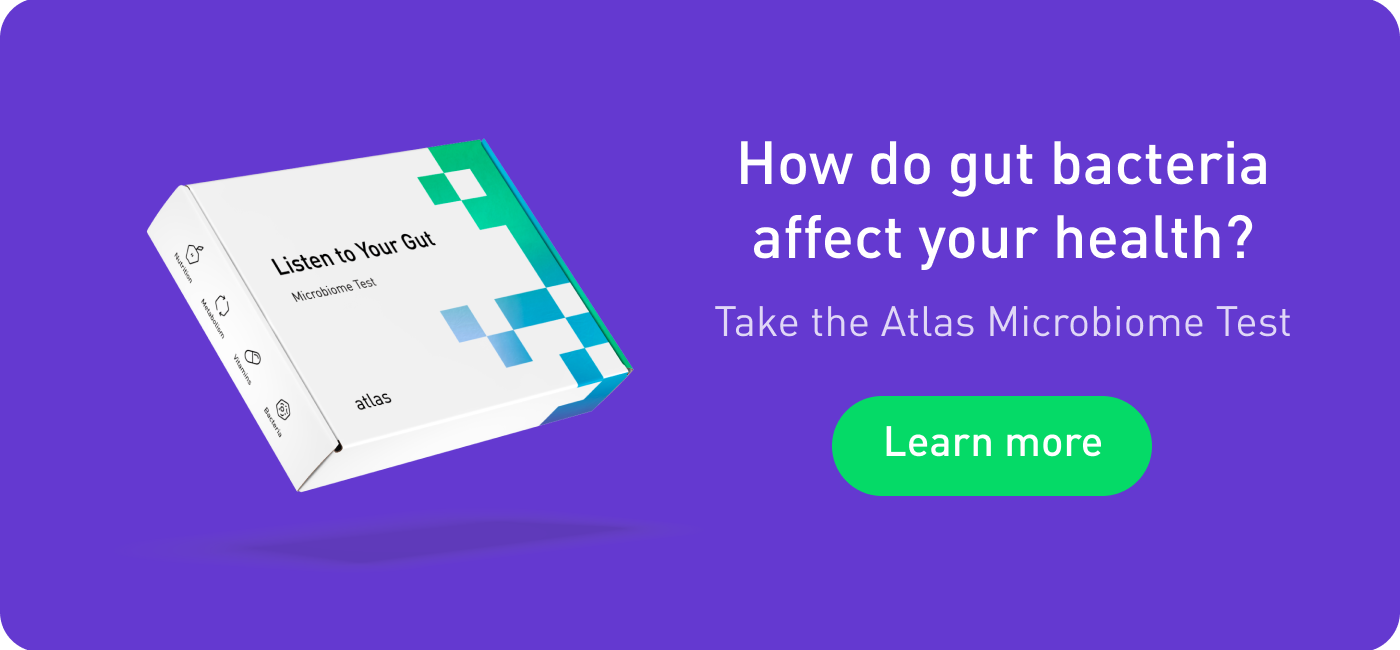
☝️DISCLAIMER☝This article is for informational purposes only. It is not intended to constitute or be a substitute for professional medical advice, diagnosis, or treatment.

